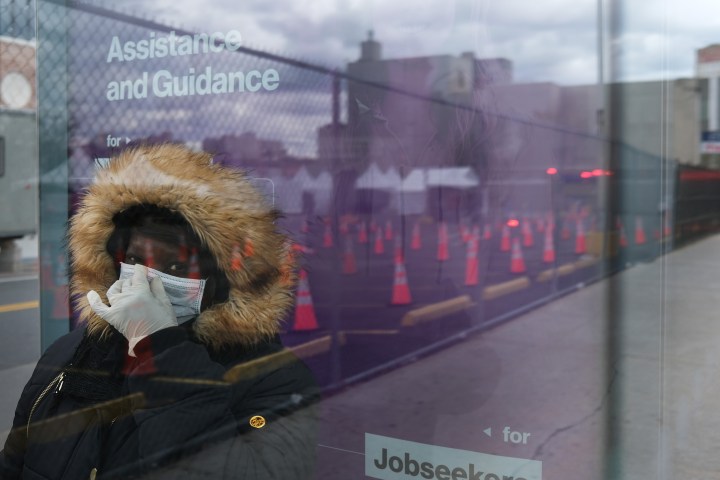
The economy is a disaster. Should we stop talking about it?
The economy is a disaster. Should we stop talking about it?

This is part of our “Econ Extra Credit” project, where we read an introductory economics textbook provided by the nonprofit Core Econ together with our listeners.
We all need to understand the economic fundamentals right now, more than ever. Get a refresher with our Econ Extra Credit newsletter.
There are different ways to talk about the economic impact of the COVID-19 pandemic, but it’s hard news to sugarcoat: Large swaths of the economy are at a standstill, millions of workers have been laid off or furloughed in a matter of weeks and it’s unclear when and how we’ll resume business as usual.
But could concentrating on the turmoil be contributing to our economic woes?
Maybe, according to Nobel laureate and Yale economist Robert Shiller, whose latest book “Narrative Economics: How Stories Go Viral & Drive Major Economic Events” studies the economic consequences of the stories we tell.
“Marketplace Morning Report” host David Brancaccio spoke to Shiller about the power of narratives during a pandemic. The following is an edited transcript of their conversation.
David Brancaccio: That disaster narrative, could it feed on itself? Could I be doing damage by telling it like it is?
Robert Shiller: There’s the inherent conflict. People have to know that it’s serious. Reassuring them falsely is not in their interest. On the other hand, we can also put a slant on it that’s so negative that they’re afraid to go out, even for things that they need. And that means that business collapses.
Brancaccio: People are comparing this to the Great Depression. Part of the danger is if you keep saying the Great Depression is here again, people stop investing, and then you have a greater problem than even the pickle that we’re in.
Shiller: So that narrative is like a disease that is lurking in the shadows, and it becomes a self-fulfilling prophecy. There is a difference this time. People thought that the Great Depression would go on forever and that made them feel nervous about taking any risks.
Brancaccio: Another meme, another narrative that was not as enduring is the so-called Spanish Flu. Now we’re talking about it, but you could have easily quizzed people a few months ago and they may not have known.
Shiller: Right. It’s unfortunately a little hard as a comparison point because it coincided with the end of World War I. The U.S. stock market actually went up at that time. But the one important difference was in 1918, they didn’t have the idea of sheltering in place, so they didn’t shut the country down then. So in a sense, this event differs from past events, not just because we had a horrible epidemic, but also because we have an aggressive way of dealing with it.
Brancaccio: There are emerging narratives of, in this terrible public health emergency, there may be opportunities to rethink an economic system that was not serving enough people. I get that, but turning the narrative only in that direction might be a disservice.
Shiller: I actually feel positive about that narrative. We have rising inequality. We have minorities that are still kept down by prejudice. I think this is a unifying moment. And I think it may actually indeed make for a better society going forward.
There’s a lot happening in the world. Through it all, Marketplace is here for you.
You rely on Marketplace to break down the world’s events and tell you how it affects you in a fact-based, approachable way. We rely on your financial support to keep making that possible.
Your donation today powers the independent journalism that you rely on. For just $5/month, you can help sustain Marketplace so we can keep reporting on the things that matter to you.

















